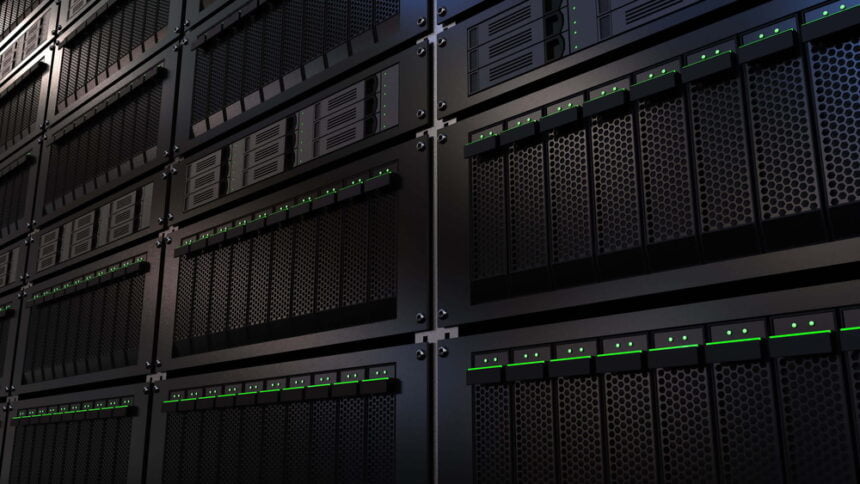E-commerce companies around the world are investing more in data centers than ever before. The benefits of data centers for e-commerce companies are undeniable. They give online retailers high levels of control over their own internal data. They are not subject to data loss from hosting it in the cloud, which might have retention policies outside their control.
E-commerce development agencies like HatchingWeb are using a lot of great data centers and hosting options to provide stable and scalable e-commerce solutions.
Role of Data Centers in E-commerce
E-commerce companies use data stored on their data centers in highly effective ways, such as improving their machine learning capabilities to assist customers. This is leading to a number of huge benefits for e-commerce companies all over the world.
Kayla Mathews addressed this trend in a blog post last year:
“Walmart is one of the major e-commerce brands contributing to the data center boom. When the company released its first-quarter fiscal year 2021 earnings, the statistics showed a 74% increase in e-commerce orders… Successful retailers know the importance of giving above-average service, whether a person shops online or in stores. Data centers can meet that goal while equipping brands to discover new, compelling ways to keep pace with customer demands,” Mathews wrote.
Big data is more than a trend in the technology sector, which is the driving force behind the growing demand for new data centers. It is a necessary resource involved in the growth of almost every modern company, as it involves the collection and analysis of detailed information that can help us build solutions to countless problems in the world.
You probably already understand the central role big data analytics plays in many of today’s industries, but do you know how it impacts e-commerce specifically? The e-commerce industry is one of the industries that is most benefiting from the robust growth of data collection and analysis. At a time when retailers such as Amazon are leading in sales with new and better models for their customers, detailed information is the key to sustained growth, as well as the main gateway for the design and implementation of new services and products.
According to the study by the consulting firm Capgemini entitled “The Deciding Factor: Big Data & Decision Making,” 25% of the improvements made by companies in their performance are achieved by information derived from big data. As a result, industries are finding the perfect marriage between advertising and personalized products by leveraging big data technology.
Data Centers Are the Key to Formulating New Customer Insights
Data centers offer a number of huge advantages for e-commerce companies. They are also to leverage the data that they accumulate and use it to form incredibly useful insights on their customers and optimize their business processes.
The use of big data offers a direct window into the minds of customers. By quietly observing their consumption habits, companies can learn not only about current behavior. It is possible for companies using sophisticated data analytics infrastructures to forecast various stages and trends among their demographics, whether low or high turnover. This wouldn’t be possible without huge advances in data center infrastructures.
One of the biggest examples is with Netflix, which has recently managed to develop a steady number of entertainment products due to the use of all the information gathered from its users worldwide. Netflix has one of the largest data centers of any video streaming service in the world. It has a remarkable data center that is able to glean insights by analyzing the ratings its consumers give to its movie catalog and by analyzing browsing patterns on its site. The collection is so detailed that it even takes into account issues such as the number of clicks a user makes, their browsing times, pause times on videos they are watching and other engagement data.
From Theory to Practice: Using Data Centers to Gain Insights
There is no question that data centers are remarkably useful for ecommerce companies. The trick isn’t understanding the technology behind the data centers themselves, but rather the benefits of the data it hosts for online stores.
When it comes to linking intelligent data with business models it is important to understand the practical benefits data stored on data centers offers for ecommerce companies and how they can use data centers to store more information. According to the company Linnworks, which specializes in automating retail processes, the use of big data represents a decisive change in the way electronic sales will be made over the next few years, due to the lucrative opportunities it offers:
- Prediction of consumer trends. Due to the information provided by algorithms in social networks, it is possible to predict the best environments for the launch of a product.
- Price optimization and possible promotions. This is achieved by observing the specific sales of a product to establish consumption patterns.
- Improve customer service and problem solving. Due to data collection, it is possible to learn more about your customers and their preferences, making it possible to design new communication channels to ensure a personalized and effective shopping experience.
- Creation of effective advertising campaigns. Due to detailed information, marketing design for companies becomes assertive, stimulating more sales while taking care of allocated budgets, as data helps to plan work strategies with a lower degree of error.
Nowadays, it is simple and accessible to integrate this new tool to your business. E-commerce data usage will continue to grow and it is necessary to integrate all the information that intelligent data provides.
E-commerce companies need robust data centers to fulfill their objectives
There is no question that big data is having a tremendous impact on the future of the e-commerce industry. E-commerce companies all over the world are assimilating data on their customers and operations in order to get the highest possible benefit. This would not be possible without the use of highly intricate data centers. They are constructing new data centers to handle the growing array of challenges that they are facing. These new data centers give online retailers access to troves of data that can flesh out their strategies.








